 RADICAL GLASGOW. A Skeletal Sketch of Glasgow’s Radical Tradition by John Couzin eBook £1.00/€1.50 (see eBookshelf) Also available from Kobo and Kindle
RADICAL GLASGOW. A Skeletal Sketch of Glasgow’s Radical Tradition by John Couzin eBook £1.00/€1.50 (see eBookshelf) Also available from Kobo and Kindle
A summary of some of the events and people that have helped to shape the Glasgow of today, a glimpse at a history that is sometimes difficult to find. My hope is that anyone who reads these few pages will be prompted to dig a little bit deeper and discover a rich heritage of which we can be very proud and perhaps try to contribute to that struggle and carry the heritage forward. The information contained in these pages has been gleaned from countless conversations, stories told, articles, pamphlets and books read over more years than I care to remember. My thanks goes to those friends, acquaintances and total strangers who over the years passed on some of these stories. — John Couzin
THE SPANISH CIVIL WAR — Objectivity and Liberal Scholarship by NOAM CHOMSKY eBook £1.00/€1.50 (see eBookshelf)
 THE SPANISH CIVIL WAR — Objectivity and Liberal Scholarship eBook £1.00/€1.50 (see eBookshelf) Also available from Kobo and Kindle
THE SPANISH CIVIL WAR — Objectivity and Liberal Scholarship eBook £1.00/€1.50 (see eBookshelf) Also available from Kobo and Kindle
Anarchist Noam Chomsky’s 1969 clinical dissection of historian Gabriel Jackson’s The Spanish Republic and the Civil War:1931-1939 (in American Power and the New Mandarins) in which, to quote editor Barry Pateman in his Chomsky on Anarchism, “he links to the liberal ideology prevalent in America in the 1960s, an ideology that reflects ‘an antagonism to mass movements and to social change that escapes the control of privileged elites,’ which in Jackson’s work reveals itself through a regular use of negative language to describe the actions of the anarchists. Chomsky, using a rich array of historical texts, brought his points to a wide audience and influenced a new generation of researchers and militants, inspiring them to probe deeper and further. In his portrayal of Jackson’s work as representing contemporary American liberal thinking on Vietnam, Chomsky impressively linked past and present, making a shrewd and disturbing comment on liberalism in general. In the words of Peter Werbe: ‘As Chomsky amply and admirably demonstrates, when the major issues of an era are settled in blood, liberalism’s pretense to humane ends or means crumbles under the demands of an implacable state.’”
The original essay consists of three parts. Part I, not reproduced here, deals with the Vietnam War and the influence of intellectuals and ‘advisers’ in government and public and foreign policy. The present extract, Part II, focuses on the Spanish Civil War and how the so-called objective ‘conservative, ‘moderate’ and liberal’ intelligentsia use elite ideology and bias to manipulate and mould public opinion. Part III is Chomsky’s summation and conclusion.
The Spanish Civil War: Revolution and Counterrevolution, Burnett Bolloten. eBook £1.50/€2.00 (see eBookshelf)
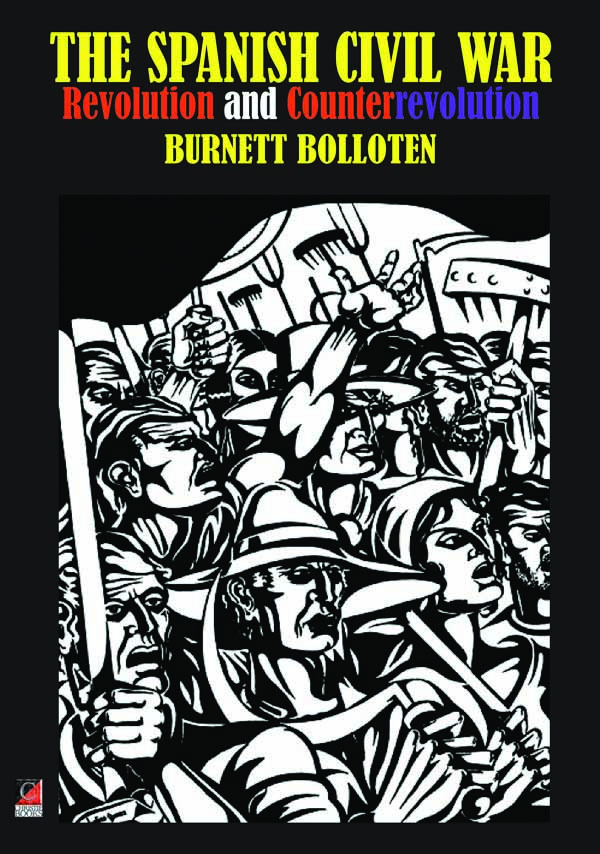 The Spanish Civil War: Revolution and Counterrevolution, Burnett Bolloten. eBook £1.50/€2.00 (see eBookshelf) Also available from Kobo BUT NOT from Kindle
The Spanish Civil War: Revolution and Counterrevolution, Burnett Bolloten. eBook £1.50/€2.00 (see eBookshelf) Also available from Kobo BUT NOT from Kindle
The final, revised, edition of Burnett Bolloten’s exhaustive and indispensable, 50-year-long scholarly study of Republican/revolutionary politics in the Spanish Civil War (“The Grand Camouflage:, 1961; “The Spanish Revolution”, 1979; “The Spanish Civil War: Revolution and Counterrevolution”, 1986), covers the entire period of the war from 1936 to 1939. Welsh-born Bolloten, initially a Communist Party fellow-traveller, was a war correspondent for United Press who witnessed at first hand the rise to power of the Stalin- and bourgeois liberal-backed Spanish Communist Party and how it successfully subverted and repressed the popular revolutionary process that resulted from the failed military-clerical-fascist pronunciamento of July 1936.
“Burnett Bolloten’s The Spanish Civil War: Revolution and Counterrevolution is a monument of dedicated scholarship that is not likely to be replaced. The best study of the subject in any language, it merits a place beside Gerald Brenan’s The Spanish Labyrinth and Raymond Carr’s Spain, 1808-1939 as a classic in the historiography of modern Spain.” — Paul Avrich, Queens College, City University of New York
HISTORIA DEL ANARCOSINDICALISMO ESPAÑOL. Epílogo hasta nuestros días: La España del éxodo y del llanto Juan Gómez Casas. eBook £1.50/€2.00 (see eBookshelf)
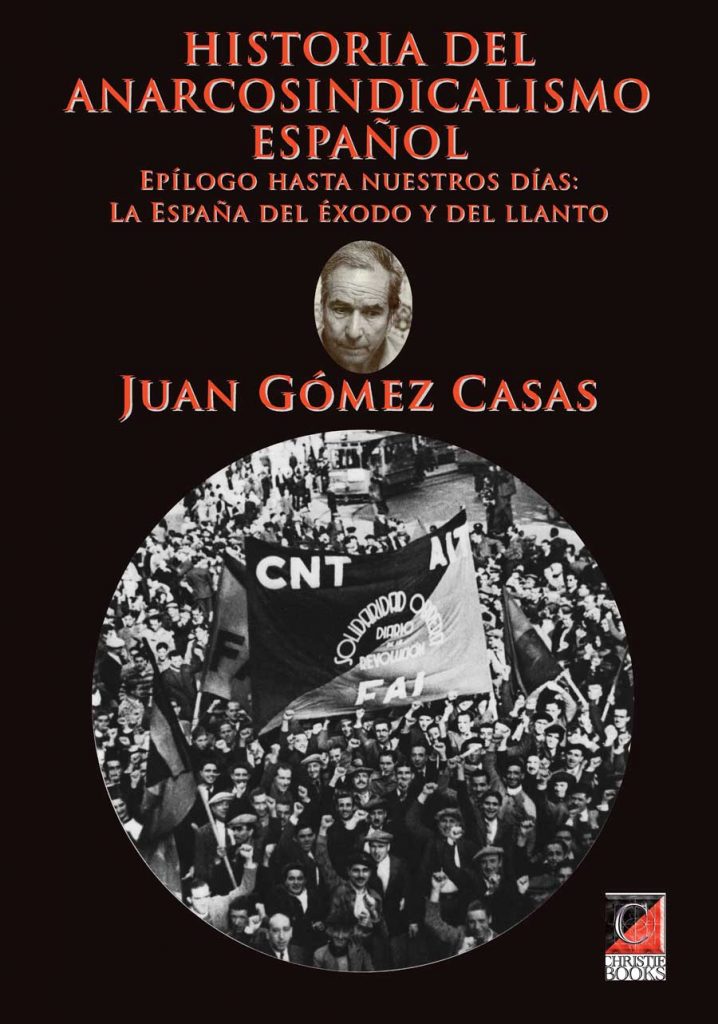 eBook £1.50/€2.00 (see eBookshelf ). Also available from Kindle and Kobo
eBook £1.50/€2.00 (see eBookshelf ). Also available from Kindle and Kobo
HISTORIA DEL ANARCOSINDICALISMO ESPAÑOL llega en nuestra editorial a la 4a Edición. Hace ya tiempo, cuando la dictadura estaba en pleno apogeo, este libro fue uno de los primeros elementos de análisis que tuvimos de la verdadera historia de nuestro pueblo. En ella el «anarco» —como familiarmente se le llamaba— llenaba la tremenda laguna y el total desconocimiento de uno de los movimientos populares y obreros más arraigados en nuestro pueblo: el anarcosindicalismo. A muchos este libro nos ha servido para comenzar y buscar un compromiso con nuestra historia y con la realidad de explotación de la sociedad establecida.
El anarcosindicalismo español ha estado íntimamente ligado a la historia española desde los primeros balbuceos de organización y asociación en el movimiento obrero hasta la máxima aportación confederad en la guerra española que llevó a la colectivización de las tierras, servicios e industrias.
More on Rudolf Ställmann, aka ‘The Baron de Koenig’, ‘Rex’, ‘Colonel Lemoine’, etc.
For aficionados of ‘Pistoleros! The Chronicles of Farquhar McHarg’ here is some additional source material on Rudolf Ställmann (aka ‘The Baron de Koenig’, ‘Rex’, ‘Colonel Lemoine’, etc.) who, after Bravo Portillo’s murder in 1919, took over the 70-strong anti-union death squads and false-flag terrorists/anti-CNT provocateurs of ‘La Banda Negra’ in Barcelona on behalf of Josep Miró I Trepat and security/police chief General Miguel Arleguí. Ställmann fled Barcelona in 1920 after his murderous activities were exposed in the CNT daily ‘Solidaridad Obrera’. The information comes from a 1941 book, ‘Total Espionage’ (Putnam’s Sons), by Curt Reiss, a US (Austrian refugee and intelligence agent) journalist who seems to have met Lemoine/ Ställmann/Koenig in pre-war Paris. Lemoine’s connection with the Deuxième Bureau is backed up by French fascist journalist Lucien Rebatet (who also worked for the French security service) whose book ‘Les décombres’ describes in detail Ställmann’s forged documents setup at his office in the rue de Lisbonne. Ställmann seems to have taken over the office (with 20 operatives, including ex-Spartakist refugee Frederic Drach) on his return from Spain in 1920-’21. These details confirm Farquhar McHarg’s belief that Ställmann had been advancing French interests since his arrival in Spain in August 1915:
MORAL COERCION by Ricardo Mella. Translated by Paul Sharkey. eBook £1.00/€1.25 (see eBookshelf)
 eBook £1.00/€1.25 (see eBookshelf ). Also available from Kindle and Kobo
eBook £1.00/€1.25 (see eBookshelf ). Also available from Kindle and Kobo
Galician-born surveyor Ricardo Mella (1861-1925) is regarded by many as one of the major theorists of anarchism in Spain. His moderate tone and outlook set the keynote for fellow-anarchists in Galicia and Asturias as he oposed jacobinism, regionalism, political socialism and extremism of any hue. While many embraced Ferrer’s rationalist educational methods, Mella campaigned for “neutral” education. Himself an anarcho-collectivist by inclination, he was one of those who brought Spanish anarchism out of the ghetto and into the workplace. His wide reading, incisive mind and preparedness to tackle the big subjects without going for extremist position has left a lasting imprint on the libertarian movement in Spain. In this work he considers the question — Can society really cope without law and government? What is the nature of moral coercion? How does it manifest itself in human relationships? What is its role in a free and egalitarian society? and how modern capitalist society turns moral coercion on its head.
“Whenever we posit that in a free society founded upon equality of condition moral coercion will be enough to maintain the harmony and peace between men, we are stating something that cries out for clear and precise proof.
“Folk being used to the belief that everything that happens in the world happens by the efforts and grace of governments, and persuaded that they themselves count for nothing in the life of society, so much so that they think of themselves are mere cogs in the machinery of government, it is going to be hard to explain to them how human society might function with no compulsion other than that deployed naturally and mutually by the members of society. So, even though the impact of moral coercion may be a self-evident fact today, we need to show that the world dances to the tune of said mutually suggestive force and that it, on its own, is enough to ensure that human groups with sound foundations can develop and survive.
HOW LABOUR GOVERNED 1945-1951 The Syndicalist Workers’ Federation (SWF) eBook £1.00/€1.25 (see eBookshelf)
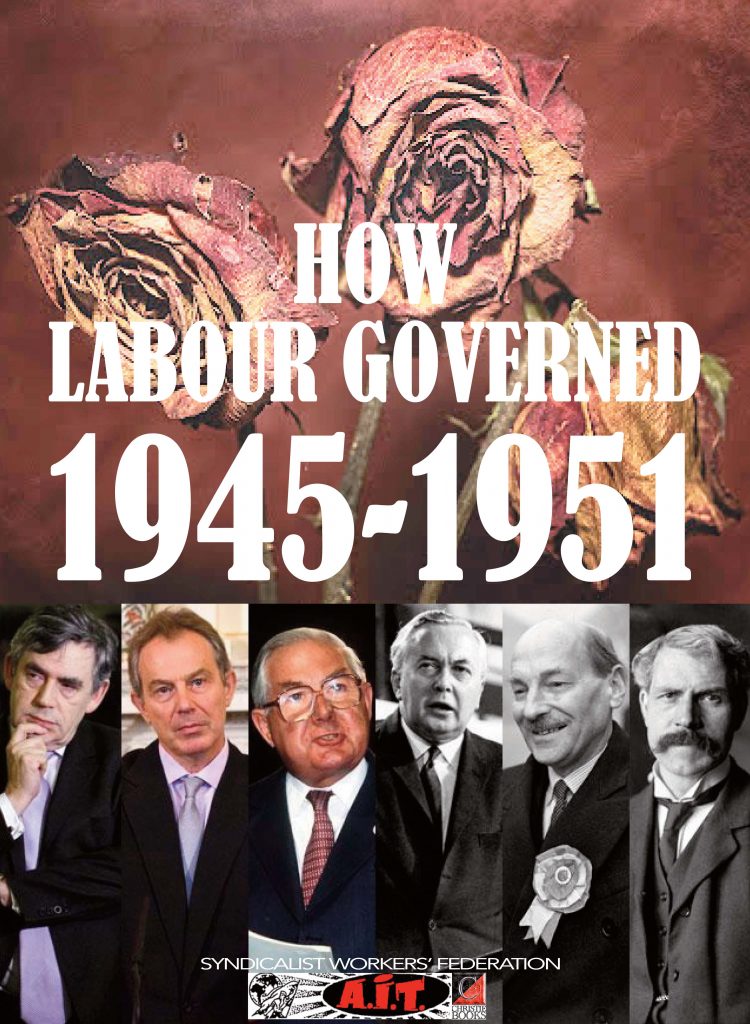 eBook £1.00/€1.25 (see eBookshelf ). Also available from Kindle and Kobo
eBook £1.00/€1.25 (see eBookshelf ). Also available from Kindle and Kobo
How the Labour Party governed between the years 1945 and 1951, examining their relationship with the working class and how “socialist” it really was.
“I look around my colleagues and I see landlords, capitalists and lawyers. We are a cross-section of the national life and this is something that has never happened before.”
Arthur Greenwood, Labour Lord Privy Seal, Hansard, August 17, 1945.
Atomic insanity
THE war in Europe ended on May 5, 1945. As a result of the General Election that followed, the Labour Government took office on July 26, 1945. Eleven days later, on August 6, the first atom bomb was dropped on Hiroshima. The second atom bomb devastated Nagasaki on August 9. The total casualties from these two insane acts will never be known, but the death roll was certainly upwards of half-a-million and, eighteen years later, victims are still dying from radiation sickness. The dropping of these bombs was not solely an act of American policy. President Truman has stated that he obtained the agreement of the British Government before the mass-murder was committed and the Labour Government had observers, including Group-Captain Cheshire and nuclear scientist Sir William Penney, at the bomb-dropping.
REPORTER IN SPAIN by Frank Pitcairn (Claud Cockburn). A Stalinist reporter’s account of the SCW. eBook £1.50/€2.00 (see eBookshelf)
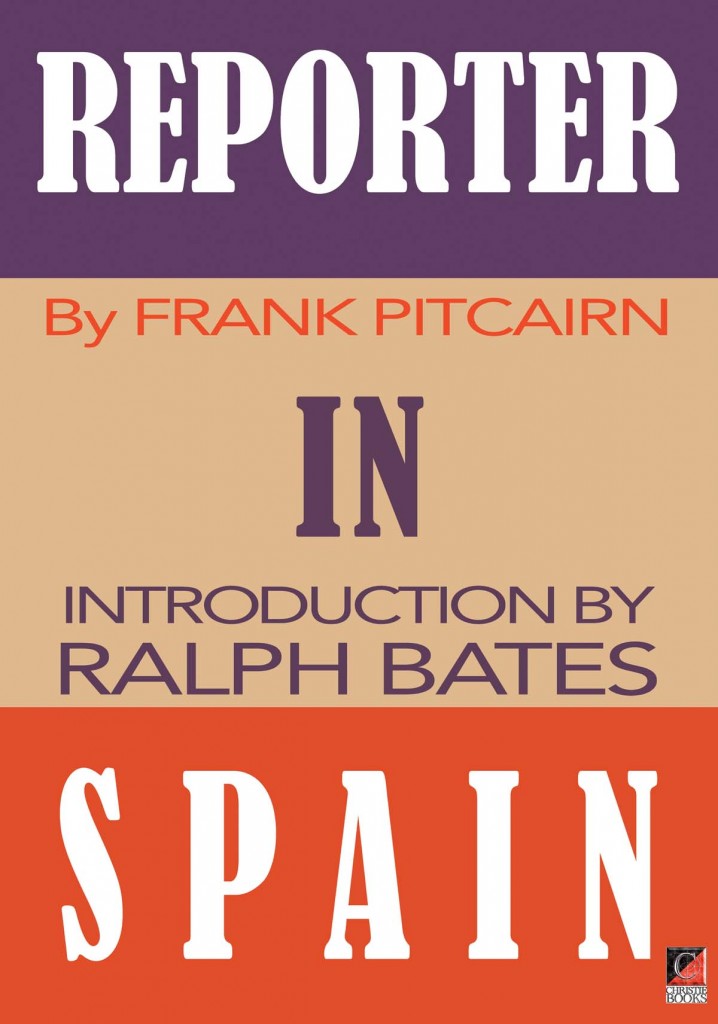 eBook £1.50/€2.00 (see eBookshelf ). Also available from Kindle and Kobo
eBook £1.50/€2.00 (see eBookshelf ). Also available from Kindle and Kobo
In 1936, Harry Pollitt, the then General Secretary of the Communist Party, asked CPGB member CLAUD COCKBURN (1904-1981) to cover the Spanish Civil War for the Daily Worker. In Spain, under the assumed name of Frank Pitcairn and endorsed by the CPGB, he joined the Quinto Regimiento/Fifth Regiment (formed by the Communist-led Antifascist Worker and Peasant Militias — Milicias Antifascistas Obreras y Campesinas — commanded by Enrique Castro Delgado) to report on the war as an ordinary soldier. The result, Reporter in Spain, was published in October 1936 by the Communist Party of Great Britain’s then preferred commercial publishing house, Lawrence & Wishart. In Homage to Catalonia (April 1938) George Orwell attacked Cockburn’s Daily Worker reports from Spain, accusing him of serving the ideological and geopolitical interests of the Soviet Union — particularly with regard to his partisan account of the Barcelona May Days of 1937, views that were reflected in his Soviet sponsored newsletter, ‘The Week’ (1933-1941).
FEUDAL SOCIETY II — Social Classes and Political Organisation, Marc Bloch (Translated by L. A. Manyon), £1.50
 Feudal Society II , £1.50 — eBookshelf (Also available on Kindle and Kobo)
Feudal Society II , £1.50 — eBookshelf (Also available on Kindle and Kobo)
FEUDALISM — which was essentially a political and military system — was above all a personal set of mutual obligations between lord and vassal. At its heart was the oath of loyalty. Before witnesses, a vassal placed his clasped hands between those of the lord and pledged to become “his man,” a relationship usually sealed by a kiss between the two men. The vassal then took an oath of faithfulness. For his part, the lord also promised to “do justice” for the vassal and his family. If he failed to ensure such justice, the vassal might rightfully conclude that the bonds of the relationship had been broken, and that the lord was no longer owed his loyalty. Under the manorial system, the primary economic system that supported feudalism, the lord allowed the peasants to work the land on his estate(s)—or manor(s)—in return for a fixed payment.
Living Anarchism. José Peirats and the Spanish Anarcho-Syndicalist Movement by Chris Ealham, AK Press, £15.00. Reviewed by Stuart Christie.
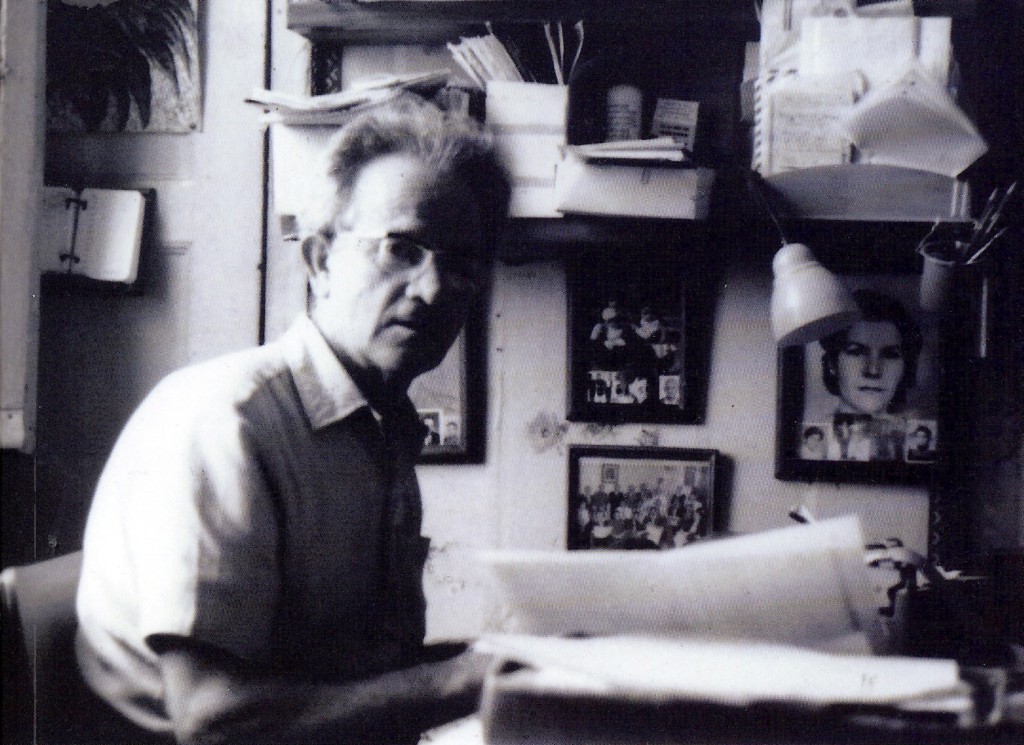 Living Anarchism. José Peirats and the Spanish Anarcho-Syndicalist Movement by Chris Ealham, AK Press, ISBN 978-1-84935-238-3, £15.00.
Living Anarchism. José Peirats and the Spanish Anarcho-Syndicalist Movement by Chris Ealham, AK Press, ISBN 978-1-84935-238-3, £15.00.
In August 1989, José Peirats — anarchist militant, brickmaker, baker, propagandist and chronicler of the anarcho-syndicalist CNT labour unions — ended his intensely lived span of eighty-one years by walking into the sea at Burriana beach. A multitude of deteriorating health issues including Parkinson’s disease meant he could no longer face life— or death — with dignity. As his biographer, Chris Ealham, observes: “As a lifelong activist, existence had little meaning without action — this had been the principle that guided him in his struggle for a better Spain.”





